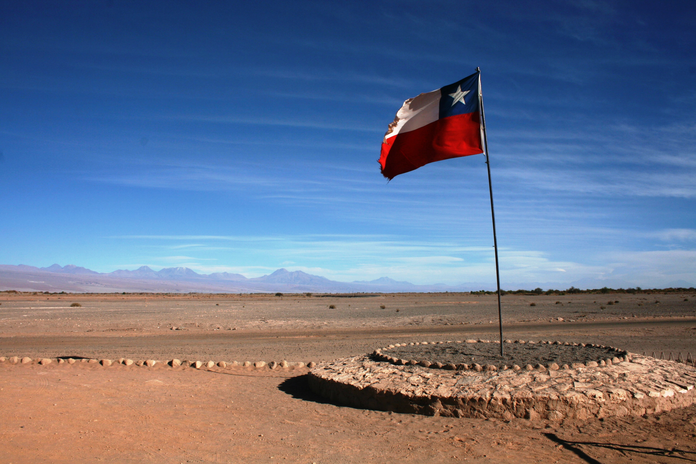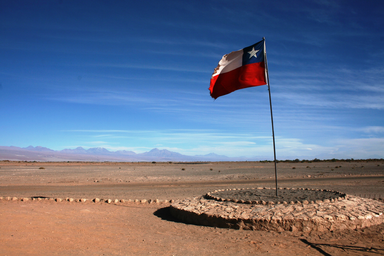Although the dictatorship period in Chile ended in 1990, it was only in 2020 that a plebiscite approved the beginning of a Constituent Assembly to draft a new Constitution for the country, which still lived under a series of laws formulated under dictatorial values.
A year later, with an economic crisis accelerated by the pandemic, pre-election euphoria and corruption scandals, a new chapter in Chilean political history begins, an era symbolized by the university professor of Mapuche origin, Elisa Loncón.
The dictatorship in Chile
The country became a refuge for Latin American intellectuals during dictatorships, which caused revolt in the national economic elites. These groups, with the support of the Central Intelligence Agency (CIA), encouraged the military coup in 1973, led by Augusto Pinochet.
The solidification of a seventeen year regime with a violent approach is a mixture of several factors, common in Latin American countries during the Cold War, according to Sabrina Bomtempo, a political scientist from the University of Brasília (UnB), associated with the Center for Studies in Contemporary Culture (CEDEC), political consultant and researcher at BaseLab.
“Chile had as president, Salvador Allende, a Marxist that was taking economic measures for a ‘socializing transition’. This was seen as a threat to the United States, which invested in actions to weaken Allende’s management”, begins the political scientist.
“When the coup occurred, several neoliberal economic actions were implemented by Chilean economists of the Chicago School in the USA, the so-called ‘Chicago Boys’. Today we have some debates about how much the period of dictatorship actually turned into an ‘economic miracle’, but we cannot deny that, miracle or not, Chile’s economy grew during the dictatorial regime, as well as economic inequality”.
Amid the enrichment of some people in Chilean society, laws with serious violations of human rights have been enacted for years. Even in 1990, after the plebiscite that allowed elections, Pinochet continued to work in politics, in a lifelong position as a senator – showing how fragile Chile’s redemocratization process was.
Why hasn’t a new Constitution been made official yet?
The Chilean dictatorship ended, but many laws have not been rewritten since then. According to Bomtempo, the explanation lies in the presence of conservative groups in the country’s politics, which requires ⅔ of votes to make changes to the Constitution.
“Only in 2004 Chile started to allow divorce and until 2020 women could only remarry 270 days after being divorced. So, we can say that the maintenance of a conservative Congress, the presence of the dictator leader Pinochet, first in command of the army and then as a Senator for life… Conservatism is still present in society and the improvement of the economy for the upper classes are factors that influenced the maintenance of laws from the dictatorial period for so many years”, completes the political scientist.
Elisa Loncón represents a popular request for changes
After years of protests, mainly in Santiago, the Constituent Assembly – postponed by the pandemic – began. The one chosen, by popular demand, to preside over it, was an intellectual, indigenous of the Mapuche ethnic group, the teacher Elisa Loncón.
Loncón represents not only the struggle of indigenous peoples, but also women and the non-white population for the recognition of rights and historic reparation, as well as the group affected by neoliberalizing measures and the lack of quality basic services, such as health and education
Sabrina Bomtempo
“The expectation is that this new Constitution will be democratic and comply with the historic demands of underrepresented groups. But it is important to understand that despite the large representation, Loncón still needs to negotiate with her peers within the Congress – and this work has been arduous”, points out Bomtempo.
Loncón’s challenges – and Chilean Democracy
Launched after a series of massive protests, the Constituent Assembly has taken place in the middle of an election year – intensifying the volatile climate in politics and economy that such a phenomenon can generate. To top it off, the current president, Sebastián Piñera, has been in the world’s news due to corruption investigations started by the scandal of “Pandora Papers”.
“Within the congress, the opposition is asking for a political judgment against Piñera, which has created tension within the legislature. This combination of political crisis and election year leaves the Constituent Assembly with difficulties in getting institutional support”, says the political consultant.
“Furthermore, the ⅔ rule for approval of constitutional changes has affected the speed of the work, since the opposition, represented by Lóncon, does not have a sufficient number to approve the measures, making the process of agreements and negotiations even more laborious and challenging. Furthermore, it was decided that measures that do not reach ⅔ of the votes will be taken to the population through a plebiscite, which also slows down the process of drafting the new Constitution”, she concludes.
—————————————————————–
The article above was edited by Isabela Novelli.
Liked this type of content? Check Her Campus Cásper Líbero home page for more!




